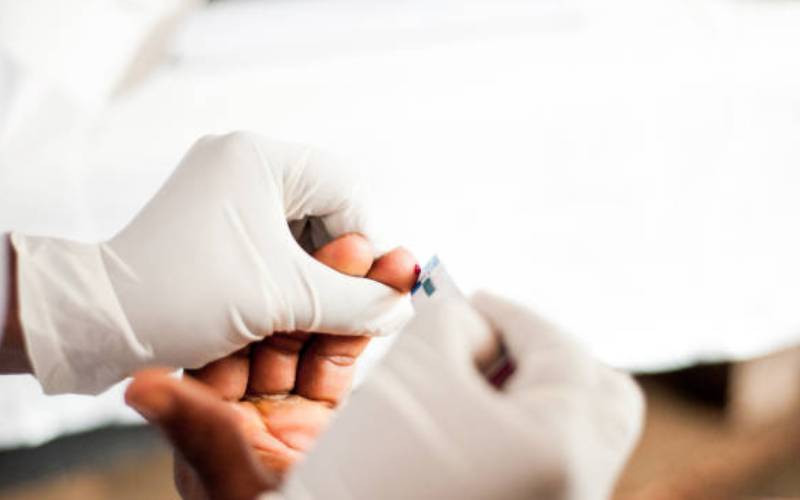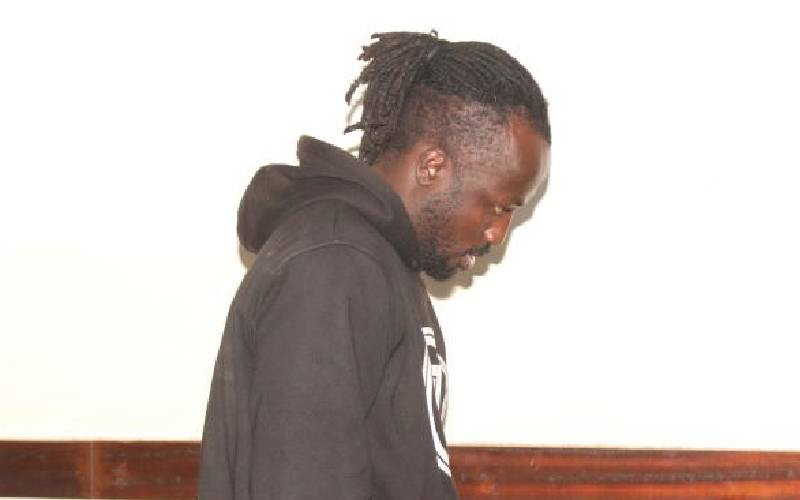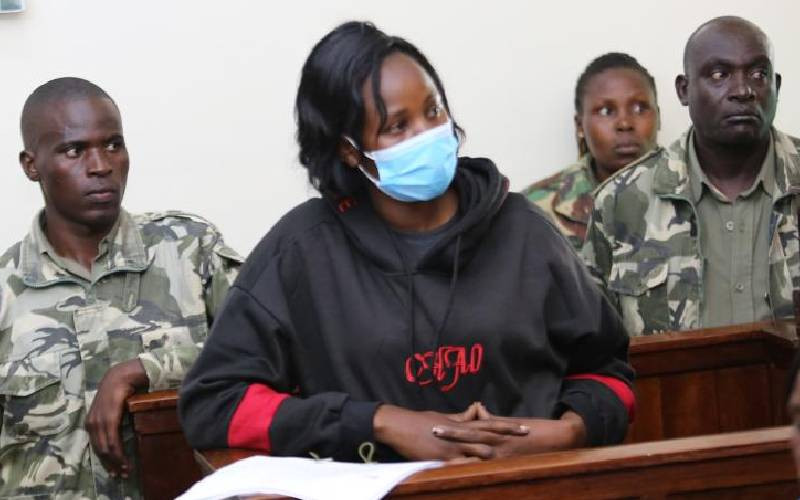Dennis Kirui Cheruiyot was only 15 years old on February 3, 2009, the day he was charged with the murder of Robert Ruto before the High Court in Kitale.
He was accused of committing the crime on January 18, 2009, at Seven Star Hotel in Sotik town, Kericho County.
He was charged under Section 203 of the Penal Code read together with Section 204. Kirui denied committing the offence.
The prosecution claimed Kirui stabbed Ruto with a knife at around 11pm, inflicting a fatal injury. Nine prosecution witnesses were called and gave overwhelming evidence against the accused.
Wesley Ngetich, a vendor, said he heard the deceased screaming outside the hotel, saying, "Dennis has stabbed me with a knife!"
Mr Ngetich went to the scene and found Mr Ruto lying on the ground near the kitchen door. He was taken to hospital but died on arrival. Ngetich said he knew both Ruto and Kirui.
Two witnesses, Vivian Chebet and Nelly Cherono, said they went to Sotik Hotel and ordered some food. They were, however, told food had run out. Vivian ordered a soda, which she drank within the hotel premises. A few minutes later, Kirui ordered everyone who was not eating a meal to leave the hotel.
Chebet complied promptly but as she was leaving, Kirui slapped her. That provoked Ruto to intervene.
Ms Cherono said at that point, Kirui threatened Ruto with death. A physical confrontation ensued, leading to the stabbing. Cherono said she saw Kirui stab Ruto.
Other witnesses include Ruto's father, pathologist Joyce Chebose Tonui and Police Constable Felix Munyao.
In his defence, Kirui told the court on that night, a scuffle had ensued between him and an unidentified person, prompting him to draw his knife.
He did not say whether or not he stabbed the deceased. He noted that it was his father who had advised him to surrender himself to police, which he did.
On August 3, 2009, Kirui was convicted and sentenced to life imprisonment.
He appealed against the conviction and the sentence.
One of his grounds was that he was only 15 years old when he was convicted and had no motive to kill anybody. The appropriate sentence should be probation.
Stay informed. Subscribe to our newsletter
The State opposed the appeal on conviction but conceded that the life sentence was not provided for under the Children Act.
The Court of Appeal in Nakuru considered the evidence and concluded Kirui had properly been found guilty of murder.
death sentence
However, the key issue for determination was Kirui's age at the time he committed the offence.
Under Section 204 of the Penal Code, any person convicted of murder should be sentenced to death.
"It is conceded that the appellant was at the material time a minor, thus he ought to have been tried and sentenced according to the provisions of the Children Act, which defines a child as any human being below the age of 18 years," the judges said.
They said Kirui should have been sentenced according to the provisions of Section 191(1) of the Children Act, which provides for among others, a sentence of probation.
But the section also provides that if the offender is above 10 years and under 15 years of age, he can be committed to a rehabilitation school suitable to his needs and attainments.
The judges held that in view of the provision of the Children Act, Kirui could not have been sentenced to life in prison because be was a minor when he committed the offence.
FIVE YEARS
"The appellant has already served five years since conviction, which means he is now aged about 20 years. The best interests of the appellant as a minor offender ought to have been of paramount consideration when passing the sentence.
"The life of a minor should be preserved, he must also be rehabilitated which in our view includes being brought to bear the consequences of his omission, errors of judgment and disregard for the rule of law," the judges said.
The judges noted that the life of an innocent Kenyan (Ruto) had been lost.
They added: "We think that due to the gravity of the offence, and the current age of the appellant, he cannot be released to the society without being brought to terms with the consequences of his action or omissions by a custodial sentence."
On Thursday last week, the court upheld the conviction for murder.
They, however, allowed his appeal against the life sentence and substitution with imprisonment for 10 years from the date of conviction.
That means Kirui will serve another five years before being released.
 The Standard Group Plc is a
multi-media organization with investments in media platforms spanning newspaper
print operations, television, radio broadcasting, digital and online services. The
Standard Group is recognized as a leading multi-media house in Kenya with a key
influence in matters of national and international interest.
The Standard Group Plc is a
multi-media organization with investments in media platforms spanning newspaper
print operations, television, radio broadcasting, digital and online services. The
Standard Group is recognized as a leading multi-media house in Kenya with a key
influence in matters of national and international interest.
 The Standard Group Plc is a
multi-media organization with investments in media platforms spanning newspaper
print operations, television, radio broadcasting, digital and online services. The
Standard Group is recognized as a leading multi-media house in Kenya with a key
influence in matters of national and international interest.
The Standard Group Plc is a
multi-media organization with investments in media platforms spanning newspaper
print operations, television, radio broadcasting, digital and online services. The
Standard Group is recognized as a leading multi-media house in Kenya with a key
influence in matters of national and international interest.









